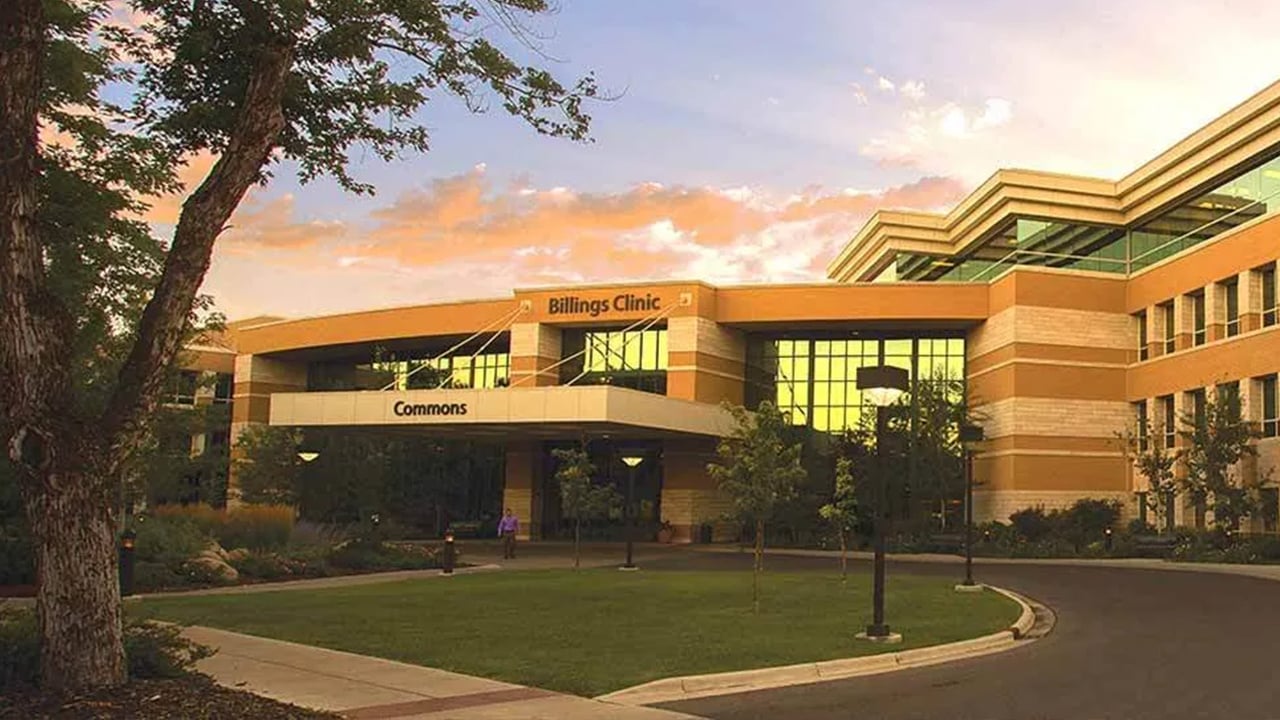Integrated workflows ease staff burden and satisfy regulatory mandates.
Clinical-Grade AI Saves Billings Clinic Hundreds of Staff Hours
Facing Medical Reconciliation Challenges, Montana’s Largest HCO Integrates Clinical-Grade AI Technology to Save More Than 300 Staff Hours and Nearly 1 Million Clicks a Year
Facing Medical Reconciliation Challenges, Montana’s Largest HCO Integrates Clinical-Grade AI Technology to Save More Than 300 Staff Hours and Nearly 1 Million Clicks a Year


Billings, Montana
304-Bed Health System
Montana’s largest healthcare organization
50,000 annual ED visits
HIS: Cerner
DrFirst go-live date: November 2015
Pharmacists and pharmacy technicians in the Billings Clinic emergency department spent hours on the phone each day—trying, sometimes in vain, to obtain accurate patient medication histories. The hospital, which annually has more than 50,000 emergency department visits, struggled under the workload.
“It was a time-consuming process and not efficient for us,” said Cynthia Gary, Billings Clinical Pharmacist and adjunct faculty at the University of Montana Skaggs School of Pharmacy. “We felt like our current technology, that we had readily available in our HIS, was not meeting our needs.”
A colleague, who had previously used the DrFirst medication history solution, highly recommended the system. Just 18 months later, Gary said the transition has been seamless and has dramatically improved staff workflow, efficiency, and medical reconciliation accuracy. Jacob Thiesse, Billings Pharmacy Informatics Coordinator and fellow adjunct faculty at the UM Skaggs School of Pharmacy, said the medication history system saves the team nearly 1 million clicks every year.
DrFirst reduces staff clicks through the clinical-grade AI technology, which reliably converts outpatient pharmacy free-text sig terms into the hospital synonym. “If DrFirst can determine that the sig that was parsed is very reliable, it will go and plug it in and put a purple icon next to the sig up above,” Thiesse said. The technology saves time and reduces errors, according to Thiesse, because the icon allows providers to move forward with confidence. “It’s something our providers think is very reliable,” Thiesse said.
Along with the clinical-grade AI technology, Thiesse indicates that the medication history system allows providers to perfect patient medication records over time by avoiding duplications. Because the system is fully integrated into the Cerner EHR, it recognizes medications already in the patient record.
“I really like how it will not allow you to add the medication to the Cerner med list if it already exists there,” Gary said. “So it really avoids those duplications on the medication list.”
Clinical-grade AI further enhances Billing’s ability to create full-spectrum patient medication histories through DrFirst’s outreach to all types of pharmacies. For Billings Clinic, their rural surroundings with numerous smaller, non-chain pharmacies, made complete medication reconciliation particularly challenging.
“DrFirst is really connected with a lot of our community pharmacies,” Gary said. “So they reach out to those local pharmacies to get the information that we need for a lot of our patients.” Gary points out that the DrFirst medication history, powered by clinical-grade AI, offers patient engagement benefits as well. Providers can view the patient’s refill history for every medication, giving the provider the opportunity to address compliance issues. If, for example, the patient is filling a 30-day supply every 120 days, the doctor, nurse, or pharmacist can start a conversation.
“It leads us to try and talk to the patient and see what’s happening with them— whether it’s a cost barrier or another issue,” Gary said. The goal of providing excellent, efficient patient care compelled the Billings Clinic team to connect with DrFirst and the clinical-grade AI solution. In just under two years, the system dramatically decreased turnaround time on accurate medication histories, streamlined workflows, produced significant staff time savings, and increased patient engagement.
“I really could not imagine going back to our previous workflow [without clinical-grade AI]. It’s been very helpful.”
— Cynthia Gary, Clinical Pharmacist
Clinical-grade AI can revolutionize hospital medical reconciliation workflows, reducing staff hours spent on the time-consuming task by up to 80%. To learn more about the impact it can make within your organization, connect with DrFirst today.
Learn More
What To Read Next
Sources:
1 http://tools.hospitalmedicine.org/resource_rooms/imp_guides/MARQUIS/Marquis_Manual2011.pdf
2 https://pubmed.ncbi.nlm.nih.gov/7790981/

